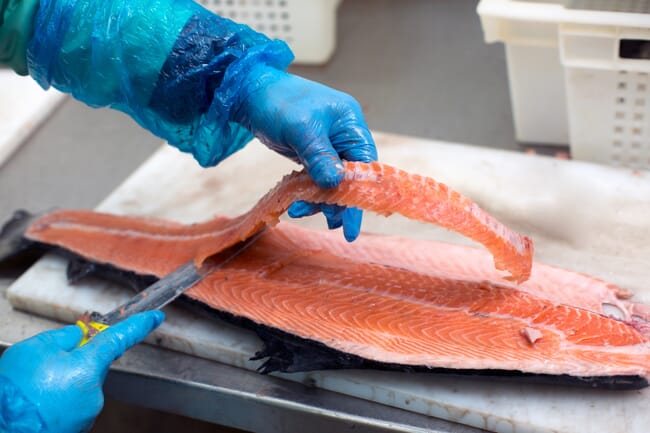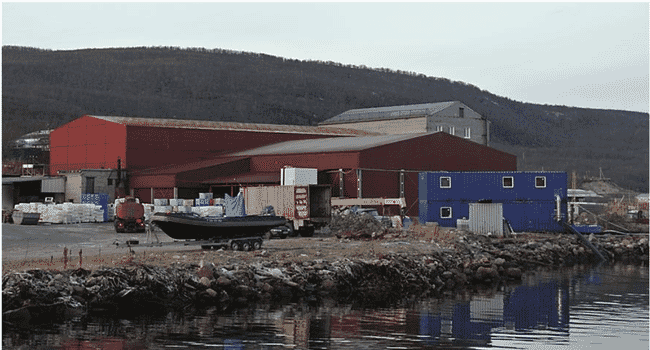A team of Scottish researchers is exploring a new bio-based process that could see fish processing waste used to create one of the key components in the production of nylon, in what is believed to be a global first.

Plastic experts from Impact Solutions; biotechnology researchers from the University of Edinburgh led by Dr Stephen Wallace; seafood producer Farne Salmon, part of Labeyrie Fine Foods; and the Industrial Biotechnology Innovation Centre (IBioIC) are exploring the feasibility of a more environmentally friendly, circular approach to the production of synthetic clothing – specifically focusing on adipic acid, a precursor to nylon.
The group are taking waste material generated as part of fish processing and using biological enzymes to extract the fatty components of the fish waste. Through advanced molecular biology, genetically modified bacteria can then turn the fatty components into a mixture of adipic acid and useful by-products.
The feasibility study marks the beginning of an important step towards finding a sustainable, bio-based alternative for the production of adipic acid, which is typically derived from petrochemicals. The steps involved in the current process are known to have a significant impact on the environment. Waste nitrous oxide is one of many by-products of the process, with some reports stating that it could be more harmful to the climate than CO2.

In addition to nylon, adipic acid is used in a range of products including polyurethane-based items such as building insulation and furniture cushioning, as well as cosmetics, lubricants, pharmaceuticals and food additives and flavourings.
As much as 492,000 tonnes of waste is created annually by the UK’s fish processing industry – comprising fish remains, oils, and wastewater collected during the clean down of processing plants. Currently, the waste must go through either expensive and energy-intensive treatment and separation or used in low value products such as animal feed or fertiliser, but this new process could uncover alternative uses for the waste material.
Waste used in the feasibility study is being provided by Farne Salmon, furthering its commitment to eliminating waste for landfill, and supporting its aims to optimise the use of co-products.
Liz Fletcher, director of business engagement at IBioIC, said: “Exploring sustainable bio-based alternatives to petrochemical-based processes is an important step in Scotland’s efforts to reach net zero, and there is a huge opportunity to make more use of co-products and extract value from industrial waste as part of that. Supporting valuable collaborative research, such as this, underlines IBioIC’s commitment to the development and growth of a more circular economy, with a variety of innovation projects and partnerships with organisations such as Zero Waste Scotland, beginning to unlock new opportunities. Aquaculture and seafood processing are prime examples of sectors exploring new ways of enhancing their environmental impacts.”




